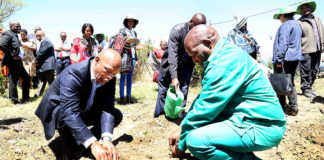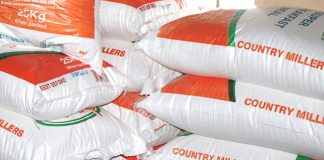This was according to the Agribusiness Confidence Index, compiled by the Agricultural Business Chamber (Agbiz) and the Industrial Development Corporation (IDC). Stanlib chief economist Kevin Lings said the latest gross domestic product (GDP) figures from Stats SA explained the positive business sentiment. “The fourth quarter GDP estimate shows 2012 was the best year the sector has had in five years, growing 10% in the fourth quarter and 2,3% overall. Agriculture had a good year in terms of output, production and prices.”
What remained to be seen was whether or not current events will supress the investment appetite of agribusiness decision makers in 2013. Lindie Stroebel, Agbiz manager of Economic Intelligence and Finance, said: “A number of mainly politically-driven events have created huge uncertainties within the broader primary sector, namely the labour unrests, social imbalances, increase in minimum wages, the reopening of the land restitution process and changes in the land reform programme.

The Agribusiness Confidence Index has observed an upward trend in agribusiness confidence since 2009. Source: Agbiz / IDC Agribusiness Confidence Index
The underlying question was whether or not the current times would bring an end to the ongoing upward trend, Stroebel said. Lings identified the three main negative factors influencing investment as labour unrest and violence associated with it, the re-opening of land claims and the ratcheting up of fuel, water, labour and electricity costs.
“These are causing concerns about conditions in the sector. SA is becoming less self-sufficient in food. We can see more and more food being imported. The re-opening of land claims will create anxiety about how claims will be settled and (about) food production. Uncertainty surrounding the land issue has a tendency to restrict people moving into agriculture,” Lings said.
On the positive side, agriculture has been identified by the National Development Plan (NDP) as playing a long-term strategic role in development. “In the NDP, government has clearly articulated its strategy to build up farming and downstream manufacturing of farm produce. That would encourage development and new jobs. Government sees agriculture as important on a number of levels but factors that impact development have to be managed appropriately,” Lings said.












